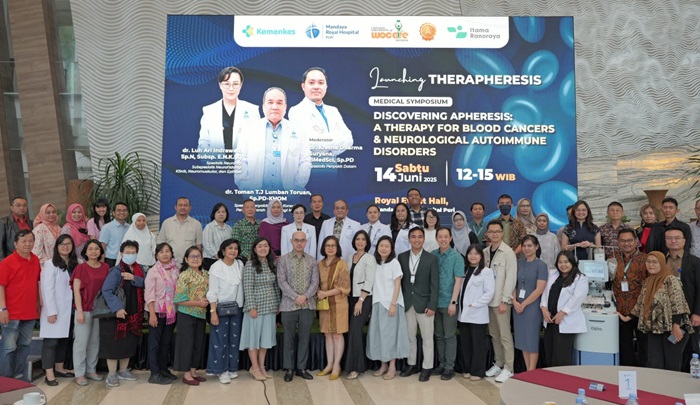Autoimmune diseases are often considered incurable, as treatments typically aim only to manage symptoms. However, when symptoms become severe and lead to a crisis, there is a therapy option available—plasmapheresis, also known as plasma exchange.
One rare autoimmune condition that can cause severe symptoms is myasthenia gravis (MG). In crisis situations, muscle weakness may spread throughout the body, including to the respiratory muscles, potentially leading to respiratory failure. A myasthenic crisis can be treated with plasmapheresis.
Plasmapheresis: A Rare Plasma Exchange Therapy
Plasmapheresis is a type of apheresis—a medical procedure that allows doctors to remove or replace specific components of the blood. To treat certain diseases, doctors may need to remove or replace a component of the blood. In plasmapheresis, the component targeted is plasma, the liquid part of blood that contains antibodies.
Normally, antibodies protect the body. But in conditions like MG, antibodies mistakenly attack healthy cells, causing disruptive symptoms.
In the plasmapheresis procedure, plasma is separated from red blood cells using a special machine. The plasma is then discarded and replaced with a substitute fluid. The goal is to remove abnormal antibodies, thereby reducing the severe symptoms of MG and improving the patient’s condition.
“Plasmapheresis can be performed to manage the severe symptoms of an MG crisis. With this plasma exchange therapy, the symptoms of MG crises can be alleviated,” said Erwin Suyanto, Public Relations at Mandaya Hospital Group.
Although effective in reducing severe MG symptoms, this therapy does not replace prescribed medications. Dr. Luh Ari Indrawati, a neurologist specializing in autoimmune neurological diseases like myasthenia gravis, explained that medication must still be continued even after undergoing plasma exchange.
“The purpose of plasmapheresis is to relieve the crisis first. However, regular medications, such as immunosuppressants, must still be administered,” explained Dr. Luh Ari, who completed her medical training in Japan.
Mandaya Royal Puri Hospital boasts a comprehensive plasmapheresis team. In addition to neurologists like Dr. Luh Ari, who are experts in rare autoimmune neurological conditions, the hospital also has experienced internal medicine specialists in hematology-oncology, including Dr. Toman T.J. Lumban Toruan and Dr. Alvin Tagor Harahap.
The treatment of autoimmune neurological diseases at Mandaya Royal Puri is also supported by advanced medical equipment and a comprehensive laboratory, offering diagnostic tools such as Anti-MuSK antibody testing and genetic testing using whole genome sequencing (WGS) and whole exome sequencing (WES). These capabilities enable accurate diagnosis and maximize treatment outcomes.
“The combination of advanced medical technology, complete lab facilities, and a team of experts enables us to provide comprehensive plasma exchange therapy for autoimmune patients,” emphasized Erwin.
In addition to autoimmune diseases, plasmapheresis can also be used to treat blood cancers, such as multiple myeloma, a cancer formed in plasma cells.
A Success Story: Plasma Exchange Therapy for a Rare Autoimmune Disease
Mandaya Royal Puri Hospital has successfully conducted plasma exchange therapy for a patient with MG who had entered a myasthenic crisis and was experiencing respiratory failure. The patient was initially admitted to the Emergency Room (ER), and the results of the therapy were remarkable.
“Based on initial examinations, the severity score of the patient’s symptoms was 37 out of a maximum 50, according to the Myasthenia Gravis Symptom Clusters (MGSC). After undergoing plasmapheresis at Mandaya, the MGSC score dropped to 0, and the patient is now in good health,” reported Dr. Luh Ari.
This successful case provides hope and reassurance. MG patients with severe symptoms no longer need to travel abroad for treatment, as Mandaya Royal Puri Hospital now has the facilities and medical expertise to handle such cases effectively.
“Mandaya Royal Puri Hospital continues to innovate in the medical field and provides comprehensive care to patients, eliminating the need for medical travel abroad. Our medical services and teams in Indonesia are already highly capable,” concluded Erwin.

